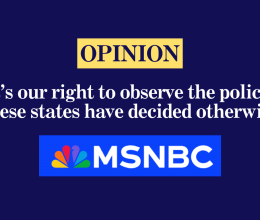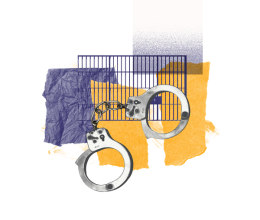Two years after passage of Louisiana’s bipartisan justice reinvestment package, these smart, sensible reforms are already working to make our communities stronger and safer.
Louisiana has reinvested $8.5 million in programs like re-entry support and services for crime survivors, while caseloads for probation and parole officers have declined. After spending years as the prison capital of the world, Louisiana has finally begun to shed that shameful title.
But that hasn’t stopped some Louisiana officials and prosecutors from taking cheap shots at these reforms or using fear-mongering to try to roll them back. These opponents of reform think they can score political points by defending a broken system of mass incarceration that failed to keep Louisianans safe and devastated communities of color.
A new poll from LSU should stop these short-sighted politicians in their tracks.
The survey showed that widespread popular support for Louisiana’s criminal justice reforms continues to grow by leaps and bounds – on both sides of the aisle.
Seventy percent of Louisianans now support the justice reinvestment package, up 9 percentage points from 2018. This growth was especially strong among Republicans, among whom support increased by 14 percentage points. A strong majority, or 60 percent, of Republicans now favor these reforms.
Even more encouraging, the numbers indicate that most Louisianans want to continue down the path of reform, rather than turn back the clock.
Eighty-eight percent of Louisianans, including 82 percent of Republicans, support expanding alternatives to incarceration, like drug treatment and rehabilitation programs, for people convicted of nonviolent offenses.
The LSU poll reflects trends that the ACLU is seeing nationwide. A national public opinion poll showed that 89 percent of voters agreed that prosecutors should actively work towards ending mass incarceration. The same survey found that 88 percent of voters are more likely to support a prosecutor who believes in reducing racial bias in the criminal justice system.
These numbers should remove all doubt that protecting and finishing the justice reinvestment package isn’t just good policy, it’s also smart politics.
For example, this year Louisiana lawmakers have an opportunity to pass HB 518 and remove nonviolent offenses from the state’s draconian Habitual Offender statute – a relic of failed and outdated “tough on crime” sentencing policies. The Habitual Offender law condemns people who commit minor crimes, like drug or property offenses, to extreme sentences – destroying lives and devastating communities. Reforming this counterproductive and harmful law will allow Louisiana to invest in crime prevention strategies that actually work, like treatment and rehabilitation.
Redemption was another recommendation from the Justice Reinvestment Task Force that was left out of the package of bills passed in 2017. Louisiana is one of only six states where adults who have received life sentences are never eligible for parole. As a result, thousands of Louisianans are languishing behind bars who pose no threat to public safety. Giving people who have paid their debts to society a chance to earn parole will save taxpayer money and strengthen our communities.
Moving forward, it’s also long past time to reform the practice of holding people who haven’t been convicted or even charged with a crime in jail for days, weeks, and even years. We know that even a single day of incarceration has devastating consequences, and that prolonged detentions cause people to lose their jobs, their homes and even custody of their children.
A fundamental tenet of our legal system is that people are presumed innocent under the law. That’s why the ACLU has laid out a vision for virtually eliminating pretrial detention, with at least 95 percent of all people in the criminal legal system released no later than 48 hours after arrest.
At a time of increasing partisan polarization, criminal justice reform is an issue that both parties can agree on.
The LSU survey gives lawmakers facing an election this fall another reason to protect and build on Louisiana’s proven, research-based reforms: it may give them a boost at the polls.






